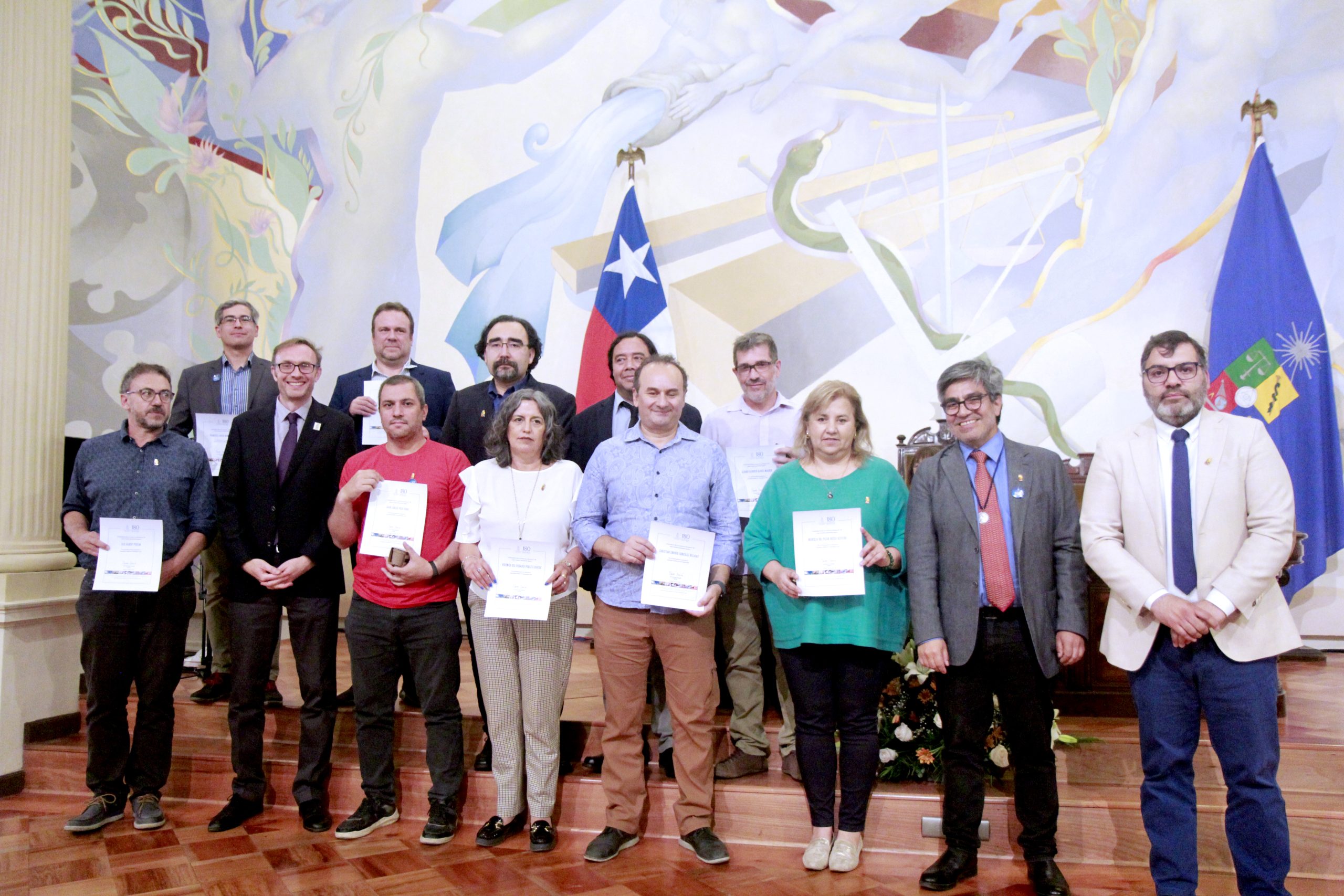Miguel Kiwi, Juan Alejandro Valdivia, Francisco Muñoz, and José Rogan, academics and researchers from the Department of Physics of the Faculty of Sciences, were honored yesterday for their scientific work, jointly with more than 200 teachers, in the context of the celebrations for the 180 years of the University of Chile.
Within the framework of celebrations of the 180 years of the Universidad de Chile, the Vice-Rectorate for Research and Development and the Rector of this house of studies honored 216 academics, researchers, and creators, through the recognition of research, innovation, and artistic creation, in a ceremony held in the Hall of Honor of the Central House.
The scientific area received awards for the academic leaders who authored 2,510 publications indexed in ISI-WOS 2021, articles that reached the top 6% of their discipline according to the 2019 impact factor, among which four academics stand out from the Department of Physics of the Faculty of Sciences: doctors Miguel Kiwi (National Prize for Exact Sciences 2007), Juan Alejandro Valdivia, José Rogan, and Francisco Muñoz.
Francisco Muñoz, an expert in quantum materials and one of the winners, says that it is an honor to belong to the Universidad de Chile, but what has been crucial for his research career is the Physics Department of the Faculty of Sciences. “Although we do not think about it every day, we are in the Department of Physics which has the best publication rates in the country. This is mainly because of my colleagues. The level of all of them is extremely high and drives us to constantly improve ourselves. Another relevant factor is the quality of our students, which allows us to guide challenging thesis projects. The criteria for this recognition is very demanding/ To be one of the publications in the top 6% shows what I just mentioned, that our institution allows us to achieve an excellent level of research,” he said.
Dr. Juan Alejandro Valdivia, a DFC academic, and a researcher in space and astrophysics plasmas, complex systems, and nanoscience, has a similar perspective. For him, developing science at the Universidad de Chile “gives us the freedom to work in different research areas, which allows creativity and collaboration to flourish.” The professor maintains that “although it is always good to feel recognition from the community, the science is pursued as an end in itself. I enjoy doing science, directing students, and transmitting the knowledge and passion for science to the new generations.”
The scientific area received recognition for members of the Faculty of Physical and Mathematical Sciences (50), Faculty of Medicine (37), Faculty of Sciences (20), Clinical Hospital (15), Faculty of Chemical and Pharmaceutical Sciences (8 ), Faculty of Economics and Business (8), Faculty of Philosophy and Humanities (5), Faculty of Agricultural Sciences (5), Faculty of Dentistry (5), Faculty of Social Sciences (5), Faculty of Veterinary and Animal Sciences ( 4), Institute of Nutrition and Food Technology (4) and Faculty of Architecture and Urbanism (3).
At the ceremony, the rector of the Universidad de Chile, Rosa Devés raised three challenges to defend in the area: the full participation of women, the importance that the State recognizes public university research in the development of the country, and inter-institutional collaborative work for large projects that the country must finance. Enrique Aliste, Vice Chancellor for Research and Development at Universidad de Chile, said that this recognition is a reflection of the work of a community. “Solidarity contributes to continue being the main institution in these topics in the country, and with it, push an entire nation to this task”.
There was also a distinction for the academics who participate as members of the Central Committee for Intellectual Property, for those whose technology has been patented in 2021, for those who have licensed their innovations in 2022, for those whose projects were awarded with on lines resources, and for the areas of artistic creation related to the call for Culture Funds and CORFO Audiovisual, during 2022.
 En la ceremonia, también fueron distinguidos los (as) académico(as) que participan como miembros del Comité Central de Propiedad Intelectual, aquellos (as) cuya tecnología ha sido patentada en 2021 y quienes han licenciado sus innovaciones en 2022. A la vez, a quienes se adjudicaron proyectos con recursos en líneas y áreas de creación artística, relativos a convocatoria de Fondos de Cultura y CORFO Audiovisual, durante el 2022.
En la ceremonia, también fueron distinguidos los (as) académico(as) que participan como miembros del Comité Central de Propiedad Intelectual, aquellos (as) cuya tecnología ha sido patentada en 2021 y quienes han licenciado sus innovaciones en 2022. A la vez, a quienes se adjudicaron proyectos con recursos en líneas y áreas de creación artística, relativos a convocatoria de Fondos de Cultura y CORFO Audiovisual, durante el 2022.
Fuente: Comunicaciones DFC





